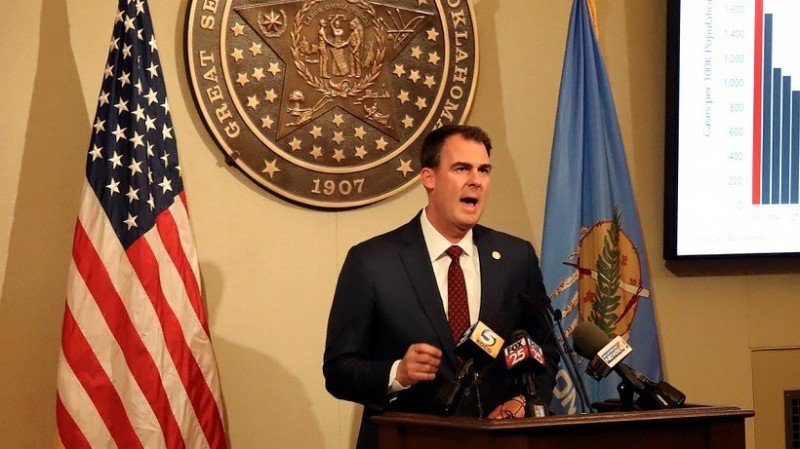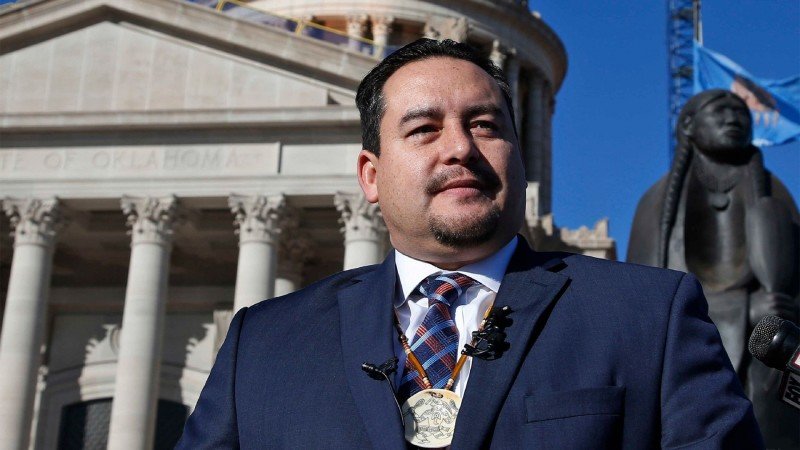Oklahoma Gov. Stitt asks Federal Court to recognize the validity of four legally challenged compacts

In new filings, attorneys for Oklahoma Governor Kevin Stitt argue the validity of four tribal gaming compacts the governor signed back in 2020 because of a U.S. Department of Interior decision they say overrides state court rulings.
The legal briefs were filed Friday afternoon in Washington D.C., according to FOX23. Stitt’s attorneys seek a dismissal of the suit against the four new gaming compacts with Otoe-Missouria, the Kialegee Tribal Town, the United Keetoowah Band of Cherokee Indians and the Comanche Nation.
They are also arguing the compacts are in effect and the tribes should be allowed to continue to build their own casinos despite a ruling from the Oklahoma State Supreme Court.

The Secretary of Interior had 45 days to review the new compacts the state entered into between four tribes outside the original tribal gaming compact. The 45-day challenge period at the Federal level passed without issue and, according to the Federal government, Stitt’s attorneys argue, the compacts took effect regardless of any legal challenges on a state level.
The new court document states that subsequent state-law decisions about the compact’s validity “thus do not represent a basis" for attacking the Secretary’s approval. “An after-the-fact state-law decision like the Treat cases cannot unwind an approval compact that has gone into effect under federal law,” the filings read.
The 45-day approval period that passed during the limbo period of 2020 was a point of contention, according to Oklahoma Indian Gaming Association President Matthew Morgan, who told FOX23 last month that it was something the Federal court needed to clear up.
Matthew Morgan.
“There are some questions there as to that 45-day approval process, but this does feel like a last-minute Hail Mary pass from a losing team,” he said. Morgan said Stitt has lost on this issue numerous times in state court, including being told he could enter into new compacts without approval from the state legislature.
Morgan stated his worry is "if the governor is allowed in future matters to go outside of the bounds of his constitutional authority, and the Federal government does have a mechanism or a way to pull those back, we could be left in precarious situations going forward with any compacts."

Cherokee Nation Attorney General Sara Hill said last month: “The Oklahoma Supreme Court made it clear that the compacts he’s defending were void a long time ago. I cannot understand why more taxpayer dollars should be used to prop up the actions of the governor when he won’t even accept the judgment of the state’s own courts."
Another point of contention lies in some of the new compacts Stit entered into in 2020, where sports betting is permitted, which is not the standard under state law. Stitt’s counsel argued that sports wagering will not be allowed in those places until it is legalized by the Oklahoma state legislature, but they were included in the original agreement, so there would be no need to revisit the topic and amend the compacts at a later date.
In a final argument, Stitt’s counsel argued that even if the court rules certain portions of the four new gaming compacts invalid, they hope that other parts would remain intact and in effect so the four tribes could establish their gaming operations.
















































